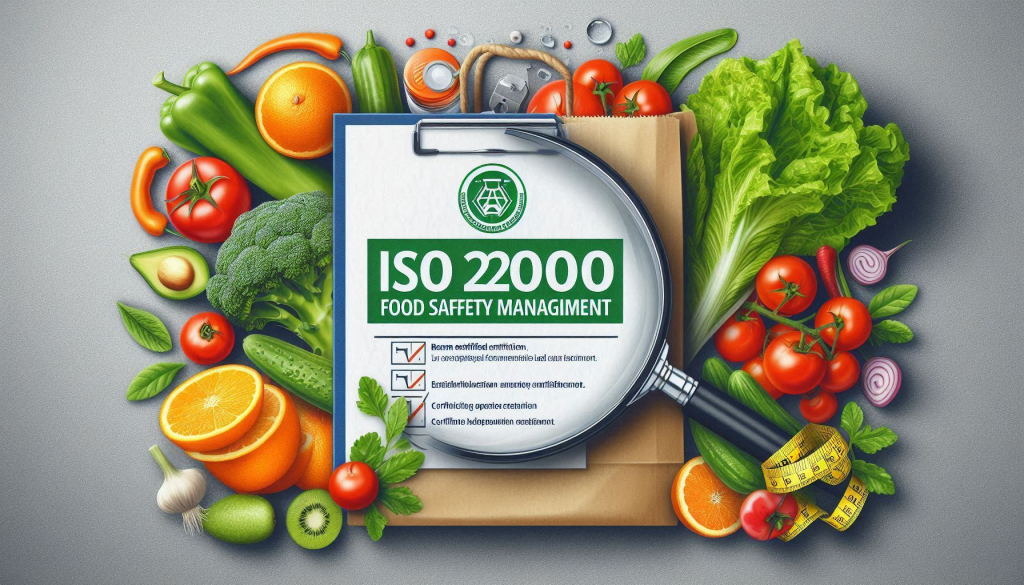Your Partner to excellence
Our Mission: Empowering Your Management System Implementation
We are dedicated to assisting you in the successful implementation of your management systems, including:
- ISO 9001: Quality Management
- ISO 14001: Environmental Management
- ISO 45001: Occupational Health and Safety Management
- ISO 37001: Anti-Bribery Management
- ISO 22000: Food Safety Management Systems
- ISO 27001: Information Security Management
- ISO 22301: Business Continuity Management
- …
Management System Implementation
Implementing a Quality Management System (QMS) with ISO 9001
At PERFORMANCES QUALITÉ, we support organizations in establishing a robust Quality Management System (QMS) that aligns with the ISO 9001 standard. Our goal is to ensure total customer satisfaction and readiness to meet stakeholder requirements. Our expertise guides you throughout the QMS implementation process, from setup to ISO 9001 certification.
Understanding ISO 9001
The ISO 9001 standard is an internationally recognized framework that sets the requirements for organizations seeking continuous improvement and customer satisfaction through a QMS. This standard represents a commitment to delivering quality products and services, making it a valuable asset for organizations of all sizes. Implementing a QMS is a strategic decision that enables organizations to enhance their overall performance, plan processes effectively and manage risks consistently.
Key Components of an ISO 9001 QMS
A well-structured QMS, as outlined in ISO 9001, consists of the following essential elements:
- Customer Focus: Prioritizing customer needs and expectations.
- Leadership: Establishing a clear vision and direction.
- Employee Engagement: Encouraging participation and empowerment.
- Continuous Improvement: Fostering a culture of ongoing improvement.
- Evidence-Based Decision-Making: Using data to inform decision-making.
- Stakeholder Relationship Management: Building and maintaining effective relationships.
Successful QMS Implementation
We believe that a successful QMS implementation requires the active participation of all stakeholders and the commitment of all resources. Our expertise will help you frame this unified project, develop the necessary tools and procedures, and ensure a seamless implementation process.
Implementing an Environmental Management System (EMS) with ISO 14001
At PERFORMANCES QUALITÉ, our goal is to empower organizations to establish a robust Environmental Management System (EMS) that aligns with the ISO 14001 standard. By doing so, we enable companies to make informed decisions, mitigate environmental risks, and demonstrate their commitment to sustainability. An EMS is a strategic tool that confirms an organization’s dedication to environmental responsibility, stakeholder satisfaction, and employee engagement.
Understanding ISO 14001
The ISO 14001 standard is an internationally recognized framework that sets out the requirements for organizations seeking to improve their environmental performance, increase operational efficiency, and implement an EMS. By adopting this standard, organizations can manage their processes effectively, optimize resource utilization, and minimize their environmental footprint. The ISO 14001 standard provides a structured approach to achieving EMS objectives, enabling organizations to contribute to sustainable development and reap numerous benefits.
Key Benefits of an ISO 14001 EMS
A well-implemented EMS based on ISO 14001 can provide numerous advantages, including:
- Environmental Protection: Reducing or eliminating harmful environmental impacts, such as pollution and waste.
- Risk Management: Minimizing the negative effects of environmental conditions on the organization’s activities.
- Compliance: Ensuring adherence to environmental regulations and reducing the risk of non-compliance.
- Performance Improvement: Consolidating environmental performance and driving continuous improvement.
- Process Optimization: Mastering the design, distribution, consumption, and disposal of products and services to minimize environmental impacts.
- Financial and Operational Benefits: Generating cost savings, improving operational efficiency, and enhancing reputation through environmentally friendly practices.
- Stakeholder Engagement: Demonstrating commitment to environmental responsibility and stakeholder satisfaction.
Implementing an ISO 14001 EMS
Our expertise at PERFORMANCES QUALITÉ will guide you through the EMS implementation process, ensuring that your organization:
- Develops a comprehensive environmental policy and objectives
- Identifies and assesses environmental aspects and impacts
- Implements operational controls and monitoring systems
- Establishes a management review process
- Continuously improves environmental performance
By partnering with us, you can ensure a successful EMS implementation that drives environmental sustainability, improves operational efficiency, and enhances your organization’s reputation.
Occupational Health and Safety Management Systems (OHSMS) ISO 45001
PERFORMANCES QUALITÉ is dedicated to assisting you in the implementation of your Occupational Health and Safety Management System (OHSMS) in compliance with the ISO 45001 standard. Implementing an OHSMS allows you to:
- Ensure the protection of both internal and external employees.
- Comply with regulatory and contractual requirements.
- Demonstrate the organization’s commitment to continuous improvement.
About ISO 45001
ISO 45001 is an international standard that specifies the requirements for an Occupational Health and Safety Management System (OHSMS). It is applicable to organizations of all types and sizes, aiming to manage and mitigate risks associated with work-related accidents, injuries, illnesses, and fatalities. The standard’s primary goal is to create a safe working environment and continuously enhance occupational health and safety performance. ISO 45001 replaces OHSAS 18001 as the new benchmark for occupational health and safety.
Benefits of Implementing ISO 45001
Implementing an OHSMS in accordance with ISO 45001 offers several potential benefits:
- Reduction or Elimination of Workplace Accidents: Minimize the occurrence of accidents and incidents in the workplace.
- Reduced Absenteeism and Employee Turnover: Enhance productivity by reducing absenteeism and retaining employees.
- Lower Insurance Costs: Decrease the cost of insurance premiums due to improved safety records.
- Health and Safety Culture: Foster a culture of health and safety where employees actively participate in their own well-being.
- Management Commitment: Ensure total commitment from management to continuously improve OHS performance.
- Stakeholder Compliance: Meet the requirements of legal, regulatory, and contractual stakeholders.
- Enhanced Organizational Image: Improve the organization’s reputation and public image.
By adopting ISO 45001, organizations can better manage their occupational health and safety risks and improve overall performance through the establishment and implementation of effective policies and objectives.
ISO 37001 – Anti-bribery management systems
ISO 37001 is the International Standard that allows organizations of all types to prevent, detect and address bribery by adopting an anti-bribery policy, appointing a person to oversee anti-bribery compliance, training, risk assessments and due diligence on projects and business associates, implementing financial and commercial controls, and instituting reporting and investigation procedures.
At PERFORMANCES QUALITÉ, we support organizations in establishing a robust Anti-bribery management system (ABMS) that aligns with the ISO 37001 standard. Our goal is to ensure compliance with legal obligations and readiness to meet stakeholder requirements. Our expertise guides you throughout the ABMS implementation process, from setup to ISO 37001 certification.
Implementation Process
The implementation of ABMS involves several critical steps:
- Commitment from top management
- Risk Assessment
- Developing a tailored anti-bribery policy
- Training and communication
- Implementing controls and procedures
- Continuous improvement
Our Commitment
We believe that the successful deployment of ISO 37001 for anti-bribery management system offers significant advantages for organizations dedicated to integrity and transparency.
By integrating this standard with our software, companies can:
- Improve their capacity to detect, monitor, and manage bribery incidents more efficiently.
- Benefit from real-time tracking, automated processes, and comprehensive reporting.
- Simplify the deployment and oversight of anti-bribery measures.
- Bolster their anti-bribery stance
- Enhancing their reputation, trustworthiness; and operational efficiency in a market increasingly aware of risk.
Food Safety Management Systems (FSMS) ISO 22000

Food Safety Management Systems (FSMS) ISO 22000
PERFORMANCES QUALITÉ is dedicated to ensuring the safety and quality of your food products, which is a critical necessity for any organization in the food industry. Given the paramount importance of food safety, no company can afford to overlook the risks associated with foodborne hazards. Implementing a Food Safety Management System (FSMS) is essential for safeguarding consumer safety and maintaining the integrity of your products. Conducting a comprehensive hazard analysis is a key component of this approach.
In light of the increasing awareness and regulations surrounding food safety, establishing an FSMS provides assurance to your stakeholders and protects your brand, financial, and professional assets. This project is executed in accordance with the ISO 22000 standard and adheres to the Plan-Do-Check-Act (PDCA) cycle.
Implementation Process
The implementation of an FSMS involves several critical steps:
- Gap Analysis and Diagnosis: Assess the current state of food safety management.
- Food Safety Policy: Develop a policy to guide the FSMS.
- Hazard Analysis and Critical Control Points (HACCP): Identify and evaluate potential food safety hazards.
- Food Safety Strategy: Formulate strategies to ensure food safety.
- Control and Mitigation Measures: Implement measures to control and mitigate risks.
- Food Safety Plan: Develop and document a comprehensive plan for food safety.
Our Commitment
We believe that the successful implementation of an ISO 22000 Food Safety Management System (FSMS) necessitates the active involvement of all stakeholders and the commitment of organizational resources. Our expertise will assist you in effectively structuring this cohesive project and establishing the essential tools and procedures for its success.
By partnering with PERFORMANCES QUALITÉ, you can ensure a robust food safety framework that aligns with ISO 22000 standards, thereby safeguarding your organization’s reputation and enhancing its overall resilience.
Information Security Management System (ISMS) ISO/IEC 27001

Performances Qualité is committed to supporting you in the establishment or certification of your Information Security Management System (ISMS) in compliance with the ISO/IEC 27001 standard. This ensures comprehensive control over risks and adherence to applicable normative, contractual, and legal requirements. Our expertise lies in guiding you through the deployment of your ISMS, ensuring the implementation and continuous monitoring of information security within your organization.
Implementation Process
The implementation of an ISMS involves several critical stages that require both external support and the active involvement of internal resources. This cohesive project aims to ensure optimal management of information security within the organization by following a structured approach based on the Plan-Do-Check-Act (PDCA) cycle:
- Diagnosis of the Existing Situation: Assess the current state of information security.
- Asset Classification: Identify and classify information assets.
- Information Security Risk Mapping: Conduct risk assessments and develop Risk Assessment Plans (RAP) and Treatment Plans (PTR).
- Manual Development: Draft the ISMS manual.
- ISMS Deployment: Implement the ISMS across the organization.
- Continuous Improvement: Regularly review and improve the ISMS.
Our Commitment
We firmly believe that the successful deployment of an ISMS requires the active participation of all stakeholders across the organization’s processes and the commitment of all resources. Our expertise will enable you to frame this unifying project effectively and establish the necessary tools and procedures for its success.
By partnering with Performances Qualité, you can ensure a robust and resilient information security framework that aligns with ISO/IEC 27001 standards, safeguarding your organization’s information assets and enhancing overall security posture.
Business Continuity Management Systems (BCMS) ISO 22301

PERFORMANCES QUALITÉ is dedicated to helping you safeguard your company’s assets, a strategic necessity for any organization. With information systems playing a crucial role in business operations, no company is immune to the risk of vital service disruptions. A Business Continuity Management System (BCMS) is essential for ensuring the safety of staff and the protection of assets. Conducting a thorough risk analysis of these assets is key to this approach.
Given the increasing frequency of downtime incidents, which can have global impacts (such as COVID-19), establishing a BCMS provides assurance to your stakeholders and protects your human, financial, and professional assets. This project is carried out in accordance with the ISO 22301 standard and follows the Plan-Do-Check-Act (PDCA) cycle.
Implementation Process
The implementation of a BCMS involves several critical steps:
- Gap Analysis and Diagnosis: Assess the current state of business continuity.
- Business Continuity Policy: Develop a policy to guide the BCMS.
- Business Impact Analysis (BIA): Identify and evaluate the potential impacts of disruptions.
- Business Continuity Strategy: Formulate strategies to ensure continuity.
- Protection and Mitigation Measures: Implement measures to protect against and mitigate risks.
- Business Continuity Plan: Develop and document a comprehensive plan for business continuity.
Our Commitment
We believe that the successful deployment of a BCMS requires the active participation of all stakeholders and the commitment of all resources within the organization. Our expertise will help you effectively frame this unifying project and establish the necessary tools and procedures for its success.
By partnering with PERFORMANCES QUALITÉ, you can ensure a robust business continuity framework that aligns with ISO 22301 standards, safeguarding your organization’s assets and enhancing overall resilience.
Information Security Risk Management (ISMS) ISO/IEC 27005
PERFORMANCES QUALITÉ is dedicated to supporting you in implementing an effective information security risk management approach in line with ISO/IEC 27005. This standard provides a comprehensive guide for organizations to establish information security based on a robust risk management framework. It complements the general concepts of ISO/IEC 27001, particularly the requirements for risk management outlined in clause 4.2.
Objectives of ISO/IEC 27005
The primary objective of ISO/IEC 27005 is to offer a structured approach to managing information security risks. It promotes a sustainable vision that enables organizations to continuously address and mitigate risks. The standard emphasizes an iterative risk management process aligned with the Plan-Do-Check-Act (PDCA) cycle, ensuring long-term management of information security risks rather than a limited-period approach.
Key Responsibilities
ISO/IEC 27005 mandates that top management actively engage in the risk management process. This involves being well-informed on a daily basis to clarify roles, facilitate decision-making, and ensure effective risk management.
Risk Management Process
The generic risk management process as outlined by ISO/IEC 27005 includes several critical steps:
- Setting the Context: Define the scope and context of the risk management process.
- Risk Assessment: Identify and estimate risks.
- Risk Analysis and Evaluation: Analyze and evaluate the identified risks.
- Risk Treatment: Develop and implement measures to treat risks.
- Risk Acceptance: Determine acceptable levels of risk.
- Risk Communication: Communicate risk-related information to relevant stakeholders.
- Risk Monitoring and Review: Continuously monitor and review risks and the effectiveness of risk treatments.
Our Commitment
At PERFORMANCES QUALITÉ, we are committed to guiding you through the implementation of ISO/IEC 27005. Our expertise ensures that your organization can effectively manage information security risks with a long-term perspective. By partnering with us, you can establish a resilient information security framework that aligns with international standards, safeguarding your organization’s assets and enhancing overall security posture.




